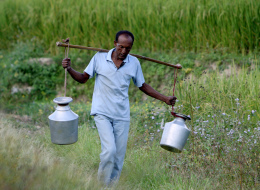Pulitzer Prize winning author Kai Bird who lives in Nepal
writes in The Huffington Post about Steven Solomon's book "Water: The Epic Struggle for Wealth, Power, and Civilization" and how water problems add to Nepal's current energy crisis. It is interesting to note that Kai is dealing with the loadshedding problem with diesel generator and inverter-batteries. Also, he doesn't mention his views about solar or any other renewable energy in his writeup, because we feel that renewable energy is crucial to addressing this issue. So, I wrote this response to Kai's article:

Kai - thanks for pointing out this critical issue in Nepal
I'm curious why you haven't explored solar PV as an alternative (full disclosure: I work for a solar PV company in Nepal) beacause using diesel and "inverter-
batteries" actually add to the water crisis.
Diesel genset spews out pollutants that cause environmental damage, which then accelerates the melting of Himalayan glaciers, which as you've pointed out is the direct cause of Nepal's hydropower plants generating less electricity.
"Inverter-
batteries" also make matter worse because they don't actually add any new energy. Instead, they inefficiently store Nepali utility company's already scarce electricity into batteries to use later as backup during "load-shedding", but with 70% loss-factor. That's why Nepali government is considering a ban on inverters (see
http://ghampower.com/?p=426)
Now I'm biased on solar. I left my job in San Francisco to come back to my native Nepal and make solar PV systems available at diesel-generator prices, because decreasing costs of PV are now at a point where developing countries can consider it as an alternative to diesel.
I'd love to welcome you to visit
http://www.ghampower.com and our offices in Kathmandu. We are confident solar can help produce a good part of your current energy needs, at costs comparable to your diesel generator and inverter-batteries, but minus the damage to water and the environment.
Read the Article at HuffingtonPost

No comments:
Post a Comment